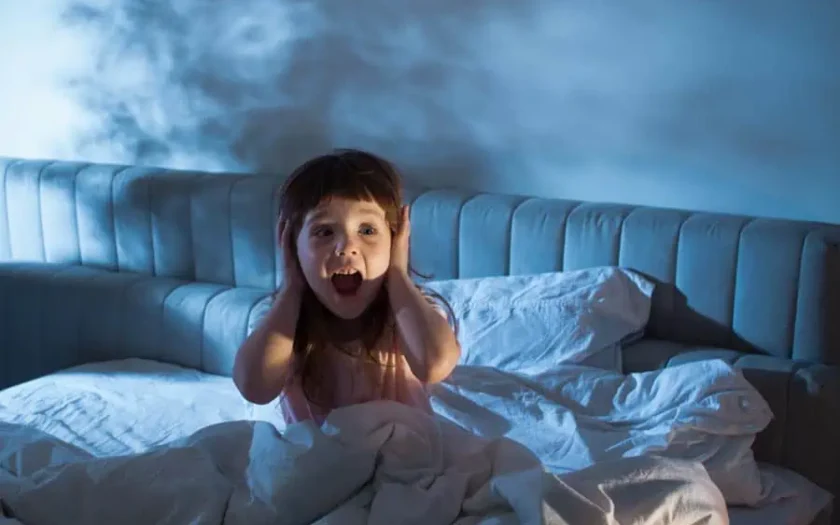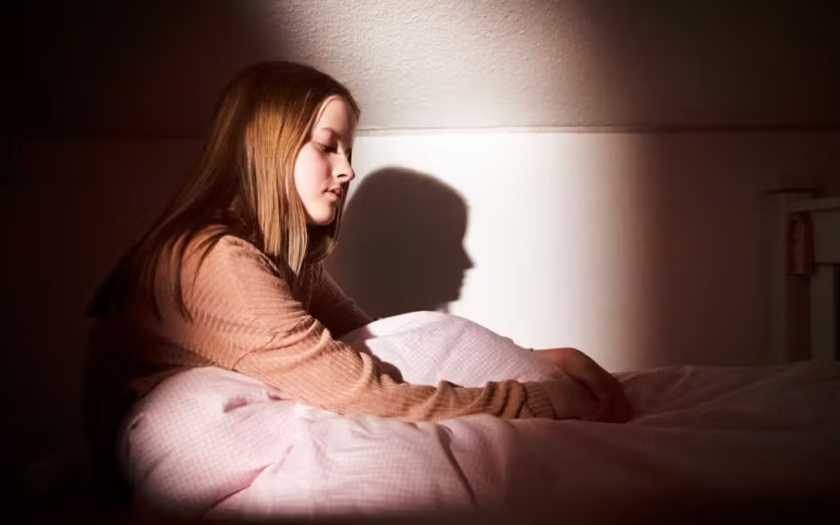Nightmares are vivid, distressing dreams that often occur about 90 minutes after a child falls asleep, and they can happen multiple times throughout the night. These scary dreams can cause children to wake up feeling frightened and upset, often needing parental comfort to settle back down.
While nightmares are a common part of childhood and usually diminish by ages 9 to 11, they can vary in frequency and content. Some children may experience different nightmares each time, while others may have recurring themes. Understanding that nightmares are a normal developmental phase can help parents provide reassurance and support. Creating a calming bedtime routine, addressing any underlying anxieties, and maintaining a consistent sleep schedule can further help reduce the frequency and impact of nightmares.
Unraveling the Causes of Nightmares: Understanding What Triggers Scary Dreams
Nightmares often occur without a specific cause, seemingly arising at random. However, they can sometimes be linked to underlying stress, anxiety, or trauma, which may manifest as vivid and distressing images related to these experiences. Additionally, disruptions in sleep patterns, such as those caused by irregular sleep schedules or sleep disorders, can also contribute to the frequency and intensity of nightmares. Addressing the sources of stress and maintaining a consistent, relaxing bedtime routine can help reduce the occurrence of nightmares and improve overall sleep quality.
Understanding Night Terrors: Differentiating Between Nightmares and Night Terrors
Night terrors are intense episodes of terror and panic that typically occur within the first 2 to 3 hours after a child falls asleep. Unlike nightmares, night terrors happen during the deeper stages of sleep, and the child is often only partially awake during the episode. During a night terror, a child might scream, thrash around, or call out, and may appear to be terrified with wide-open, unfocused eyes. These episodes usually last between 5 to 10 minutes and may occur more than once in the same night. Children often do not wake up during the episode and typically do not remember the night terror the following morning.
Night terrors are common in children and can occur without any obvious cause. They often run in families and are generally not linked to stress, diet, or parenting practices. However, factors such as sleep deprivation, fevers, or conditions like reflux can sometimes trigger night terrors. Despite being distressing to witness, night terrors are usually a normal part of development and do not require medical intervention unless they are frequent or severely disruptive.
Managing and Supporting Your Child During Night Terrors: Practical Tips
If your child has a nightmare, offer immediate comfort by reassuring them that the dream isn’t real and that they are safe. This reassurance is often enough to help them settle back to sleep. If the same nightmare recurs, try to identify potential triggers by discussing the dream with your child and exploring any underlying fears or anxieties.
For night terrors, remember that your child is typically not fully awake, so it’s best to avoid waking them. Instead, ensure their safety by checking their environment and staying calm while the episode unfolds. Do not attempt to rouse them, as this can lead to confusion. Ensure that your home is secure by locking doors and windows, as children might inadvertently run during a night terror. If your child frequently experiences night terrors and you are leaving them in someone else’s care, inform the caregiver about what to expect and how to handle the situation.
Knowing When to Consult a Doctor for Persistent Sleep Problems in Children
If your child is experiencing frequent nightmares or night terrors, it’s important to recognize when these sleep disturbances may require medical attention. Persistent or severe episodes can affect your child’s well-being and daily functioning, making it crucial to seek professional advice. Understanding the signs that indicate a need for a doctor’s consultation can help address underlying issues and ensure your child gets the appropriate support.
If your child frequently experiences nightmares or night terrors, or if these disturbances impact their daily life, it’s important to consult their doctor. Persistent or severe episodes may warrant a medical evaluation to rule out underlying issues or medical conditions that could be contributing to the problem.
You should consider seeing your child’s doctor if:
- the frequency of nightmares or night terrors is disrupting your family’s sleep and overall well-being;
- your child shows signs of excessive daytime sleepiness or fatigue;
- the episodes pose a risk of injury to your child or others, due to violent or erratic behaviors;
- there are accompanying symptoms such as sleepwalking, significant behavioral changes, or ongoing anxiety that interfere with daily functioning.
A healthcare professional can help identify potential causes and suggest appropriate interventions or treatments to address and manage these sleep disturbances effectively.
If your child’s nightmares or night terrors are frequent, disruptive, or causing daytime issues, seeking medical advice is essential for proper evaluation and treatment. Early intervention can help identify underlying conditions and provide effective strategies to improve your child’s sleep quality and overall well-being. Don’t hesitate to consult with a healthcare professional to ensure your child receives the support they need for healthy sleep patterns.
Effective Strategies for Managing Night Terrors in Children
Night terrors typically do not require specific treatment, but consulting with your child’s doctor can provide reassurance and help rule out any medical causes. If needed, your doctor might refer you to a pediatrician, psychologist, or sleep specialist who can investigate underlying health issues and provide strategies to reduce the frequency of night terrors. These specialists can also assist in establishing healthy sleep routines and habits to improve overall sleep quality, which may help alleviate the occurrence of night terrors. Additionally, they can offer support and guidance to manage and address any emotional or developmental factors contributing to the night terrors.



